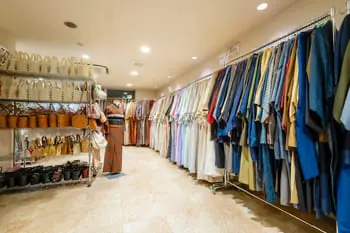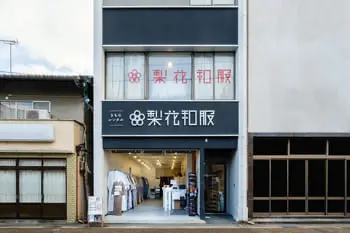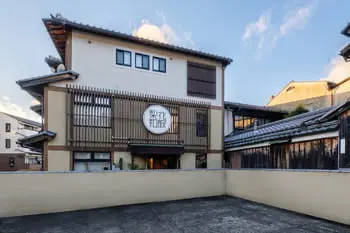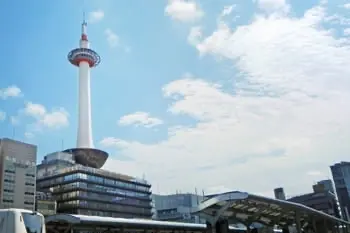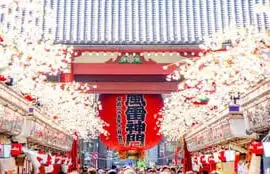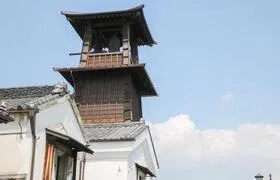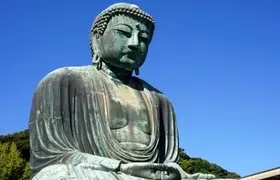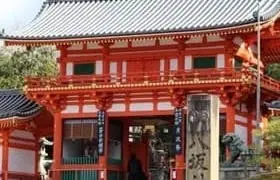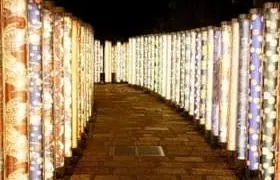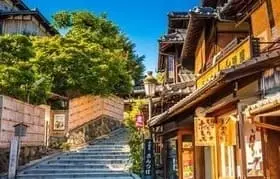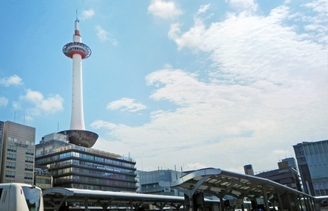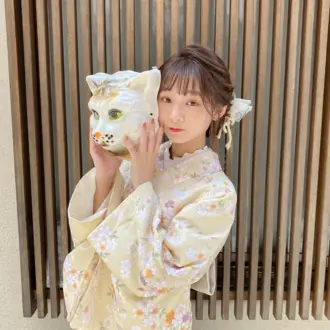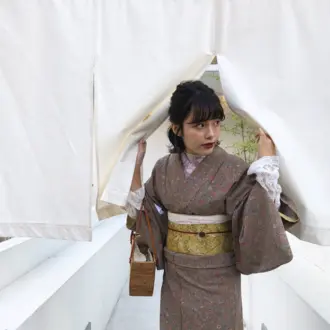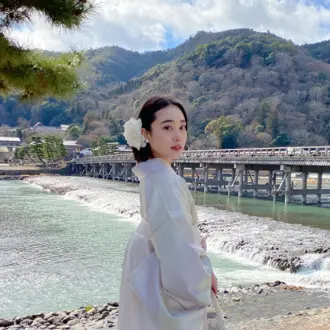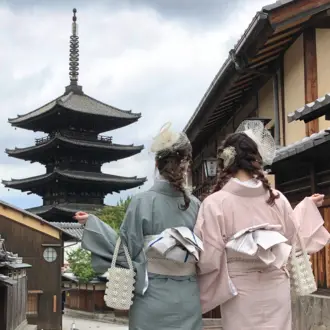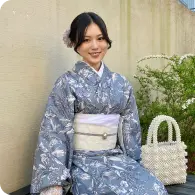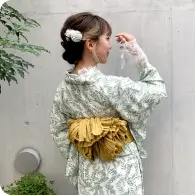A must-see for vintage clothing and kimono lovers! Introducing antique markets in Kyoto!
Antique markets, where you might encounter antiques and hidden treasures, are held all over the country.
However, antique markets are often small in scale, making it challenging to find desired items or attend them due to irregular schedules.
Interestingly, in Kyoto, there is a large-scale antique market held regularly every month. In this article, we will introduce you to Kyoto’s antique market called “Tenjin-ichi.”
1. “Tenjin-ichi” Held on the 25th of Every Month at Kitano Tenmangu Shrine
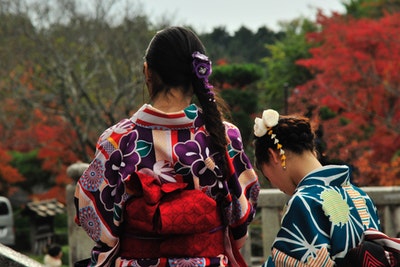
“Tenjin-ichi” is an antique market held at Kitano Tenmangu Shrine in Kyoto’s Kita Ward on the 25th of every month. It takes place from 6 a.m. to 4 p.m., and there are approximately 300 stalls.
Among free-to-enter antique markets, “Tenjin-ichi” is known for its large scale. The “Nagoya Antique Festival” has 220 stalls, while Tokyo’s “National Antiques and Folk Crafts Festival” and “Oedo Antique Market” have 250 stalls each. Therefore, “Tenjin-ichi” can be considered one of the largest free-to-enter antique markets in the country.
The event’s monthly schedule is derived from the birthdays of Sugawara no Michizane, the deity enshrined at Kitano Tenmangu Shrine, which fall on the 25th of June and the 25th of February. Originally, it began as “stalls to welcome visitors,” and during the Genroku period (Edo era), it had taken on the appearance of a modern-day fair. With its significant size and deep historical roots, it is indeed a remarkable antique market.
1.1. Recommended to Search for Hidden Treasures in the Morning
Tenjin-ichi’s operating hours are from sunrise to sunset, starting at 6 a.m. and ending at 4 p.m.
While there is no entrance fee, allowing you
Unlike many flea markets and antique markets that are not well-organized, Tenjin-ichi categorizes shops by area.
Omotesando has many amusement and food stalls, offering an atmosphere more akin to a festival rather than an antique market.
The eastern path leading to places like Higashi-Shichiken is known for antiques and vintage clothing, while the western side features bonsai and potted plants. If you’re searching for vintage clothing, focusing on the eastern side would be a good idea.
Abundant Food Stalls
Tenjin-ichi is famous not only for kimonos and antiques but also for its variety of food stalls.
It offers classics like takoyaki and okonomiyaki, as well as unique items such as warabimochi, Uji tea, and grilled bamboo shoots that you wouldn’t typically find at other festivals.
Additionally, there are many preserved foods like pickles and tsukudani, making it an excellent place to buy souvenirs.
Basic Information
- Date: 25th of Every Month
- Hours: Around 6:00 AM to around 4:00 PM (Please note that times may vary depending on the season)
- Admission: Free
- Venue: Kitano Tenmangu Shrine Premises and Surroundings
- Address: 602-8386 Kyoto Prefecture, Kyoto City, Kamigyo Ward, Bakurocho
- Phone: 075-461-0005
- Access: City Bus Routes 50 and 101 from JR Kyoto Station / City Bus Routes 51, 102, and 203 from Imadegawa Station on the subway / City Bus Route 55 from Hankyu Omiya Station, among others. Get off at “Kitano Tenmangu-mae” bus stop for routes 10, 55, 102, and 203, right in front of Kitano Tenmangu Shrine.
Items You Can Buy at Tenjin-ichi
While Tenjin-ichi is an “antique market,” you can find a wide variety of items beyond antiques.
If you explore the venue slowly, you might come across hidden treasures and interesting items.
Vintage Clothing and Kimono
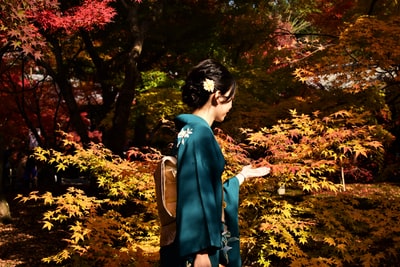
Tenjin-ichi is known for having many shops that deal with kimonos compared to other antique markets. You can find a wide range of items, from colorful kimonos for foreigners to affordable antique kimonos, obi sashes, and Japanese-style accessories.
Many people visit to find kimonos for coordinating their Japanese-style outfits, so even just observing the people and items on display can be enjoyable.
If you’re interested in antique kimonos, you can learn more here: 5 Key Points to Know When Renting Retro Antique Kimonos in Kyoto
Antiques
Tenjin-ichi gathers various antiques and vintage items such as tea utensils like teacups and iron kettles, Buddhist statues, decorative plates, sake cups, old coins, and more. You can observe collectors searching for hidden treasures among these items.
Prices for these items vary greatly, from rare antiques considered valuable to antiques with lower market value. If you arrive early in the morning, you might stumble upon unexpected treasures.
Retro Goods
Tenjin-ichi also offers a wide range of retro goods from the Showa era, including milk bottles, glasses, and toys.
Some items might seem “unidentifiable” or “clearly damaged,” but that adds to their charm. You can explore and find interesting items that could be used as interior decorations in your home.
Handmade Items
Tenjin-ichi’s distinctive feature is the abundance of handmade items created from retro items of the Showa era. These include original wall clocks made from retro items, fabric accessories made from vintage clothing, and bags made from old aprons.
Many of these items have a “Japanese” theme and can be coordinated with yukata or kimono outfits.
Potted Plants and Bonsai
In the western area, you can find potted plants and bonsai. It’s somewhat unusual to see them at an antique market or flea market.
The types of trees available vary depending on the season, and you might even come across varieties like Japanese pepper seedlings that are not commonly found in gardening stores. This is a must-visit for those into home gardening or gardening.
During New Year’s and other special seasons, they also sell specially arranged plants and trees.
Learn more about kimono shops from this article: What Are Kimono Shops Like? Understanding Kyoto’s Traditional Kimono Stores.
Are Antique Kimonos Affordable?
When it comes to antique kimonos, affordability varies. While you can find inexpensive antique kimonos, some can cost tens of thousands of yen.
Particularly, popular patterns and weaving styles tend to come with higher price tags.
★Discover more helpful articles for your Kyoto trip.
Kyoto Kimono Rental for Couples – Explore the City in Traditional Style!
We recommend renting a kimono in Kyoto and traveling alone! Make wonderful memories!
10 sightseeing spots where you should rent a kimono during New Year’s in Kyoto
★Articles that will help you when renting a kimono
Kimono Rental in Kyoto & Asakusa: 5 Common Mistakes to Avoid on the Same Day
How to walk without ruining your kimono when renting it in Kyoto
Where is the best reservation area for kimono rental in Kyoto?
Author of this article
Kyoto Kimono Rental Rikawafuku operates four kimono rental shops in Kyoto city, including locations in Arashiyama, Gion, Kiyomizu Temple, and in front of Kyoto Station. In 2023, they served over 230,000 customers in the Kyoto area!
They offer affordable plans, with a kimono dressing plan starting from 3,500 yen, and a hair setting plan from 5,500 yen.
Close to popular tourist spots such as Togetsukyo Bridge, Kiyomizu Temple, Yasaka Koshindo, and Yasaka Shrine!
Kyoto Kimono Rental Rikawafuku
Kimono Rental Rikawafuku Gion Store
Kimono Rental Rikawafuku Arashiyama Store
Kimono Rental Rikawafuku Kiyomizu Temple Store
Kimono Rental Rikawafuku Kyoto Station Front Store

